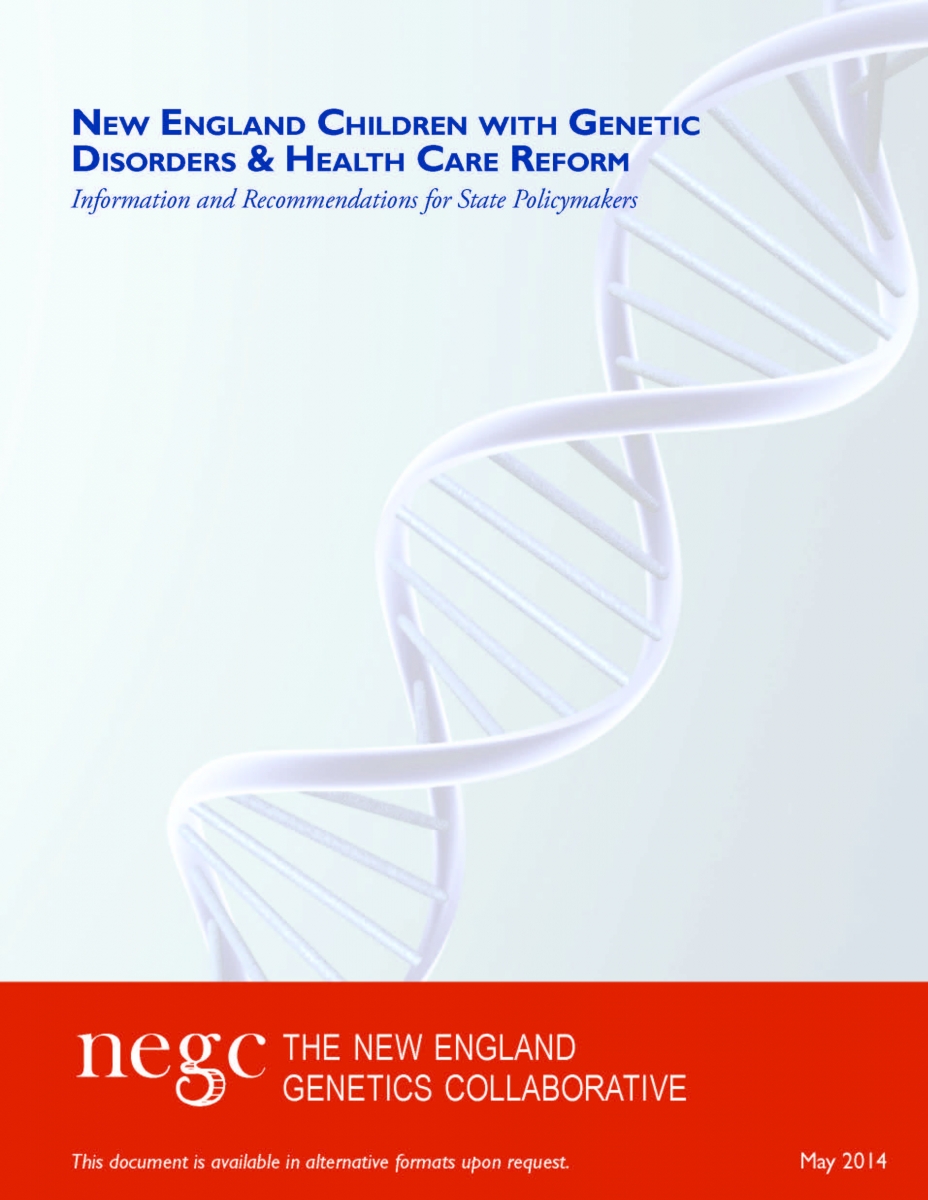NEGC Publishes Recommendations on State Implementation of Affordable Care Act

The New England Genetics Collaborative (NEGC) released its findings on the 2010 Patient Protection and Affordable Care Act’s (ACA) impact on children with genetic disorders and their families, along with recommendations for policymakers regarding the state-level ongoing implementation of the Act.
Although the ACA represents a step forward for the nation’s healthcare system, execution of the legislation by individual states may perpetuate gaps in coverage that put the health and well-being of children with disabilities at risk and could expose their families to overwhelming medical debt. The report, New England Children with Genetic Disorders & Health Care Reform: Information and Recommendations for State Policymakers, outlines the challenges of underinsured children with genetic disorders in accessing the specialized and often expensive health care services they require, and the ways in which these gaps in insurance coverage can be closed under the ACA.
“While the Affordable Care Act is intended to improve coverage for the underinsured, the Essential Health Benefit categories established by the law are built on existing coverage models and could potentially replicate current gaps in health benefits,” said Monica McClain, PhD, Co-Director of the NEGC. “State policymakers who wish to be leaders in the implementation of the ACA must take action to ensure that children with genetic disorders and their families are not left behind.”
"State policymakers who wish to be leaders in the implementation of the ACA must take action to ensure that children with genetic disorders and their families are not left behind."
- Dr. Monica McClain
Data gathered from an online survey of families and parents of children with genetic disorders throughout New England identifies the greatest shortcomings of insurance coverage in the areas of habilitative services. These include such things as physical, occupational, and speech therapy (40.3%); medical devices such as wheelchairs, braces and hearing aids (35.5%); and prescribed medical foods including nutritional replacements and feeding devices (32.4%).
The report also includes recommendations for state policymakers regarding gaps in insurance benefits, identifies opportunities for improving coverage and availability created under the ACA, and lists resources for both policymakers and consumers, including family leadership organizations, state insurance regulators, and centers for health care reform.
Download the full text of New England Children with Genetic Disorders & Health Care Reform: Information and Recommendations for State Policymakers here.
The New England Genetics Collaborative (NEGC) works to improve the health and social well-being of those with inherited conditions. It encourages collaborations among public health professionals, private health professionals, educators, consumers, and advocates in Maine, New Hampshire, Vermont, Massachusetts, Rhode Island, and Connecticut. The NEGC, a program of the Institute on Disability, is funded by Grant No. H46MC24093 between the University of New Hampshire and the Health Resources and Services Administration/Maternal and Child Health Bureau/DSCSHN Genetic Services Branch.